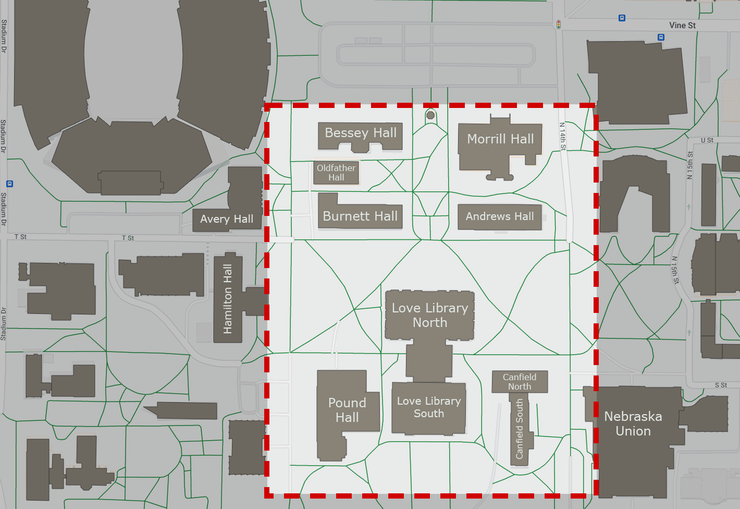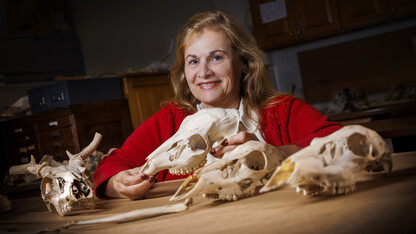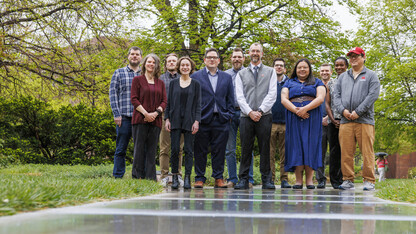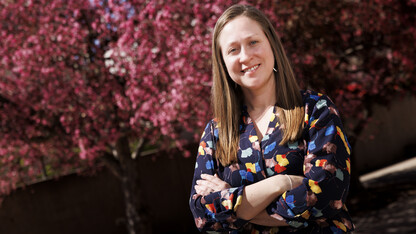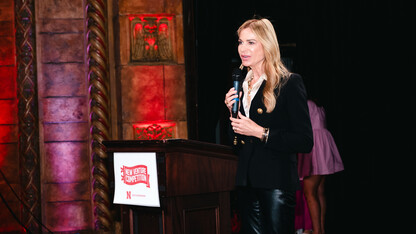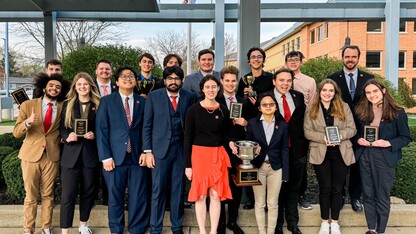· 3 min read
University to add, replace 50-plus lights along campus walkways
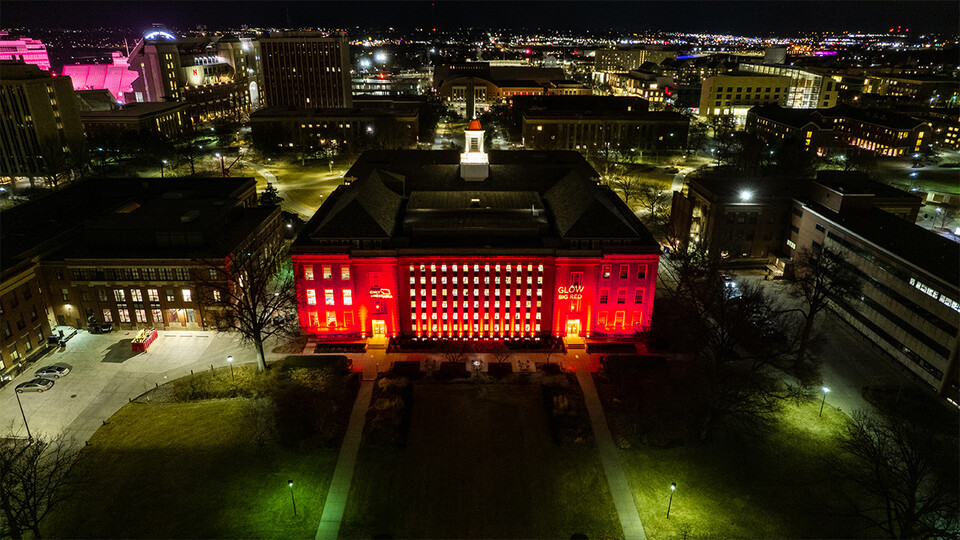
A summer construction project will cast the University of Nebraska–Lincoln in a new light — a few dozen of them, actually.
The project, which will commence in June and should wrap by the start of the fall semester, will add and replace more than 50 lights along high-traffic walkways on City and East Campus.
Most of the 13-foot-tall, pole-mounted night-lights will illuminate City Campus, extending from the cluster of buildings just east of Memorial Stadium — Bessey, Morrill, Oldfather, Burnett and Andrews Hall — down to Love Library, the Canfield Administration Building and the Nebraska Union. A few others will shine down on a pathway being added to the Maxwell Arboretum on East Campus.
Adam Schlotthauer, an engineering project manager with Facilities, Planning and Capital Programs, said lights are being added to maximize the safety of students, faculty, staff and visitors.
“There have always been some dark spots here and there,” said Schlotthauer, who earned both his bachelor’s in electrical and computer engineering and his master’s in engineering management from Nebraska U. “It’s kind of inevitable, with the trees and (other obstructions). Having those extra lights there should ensure that everyone feels a little bit safer.
“I would venture to say that it’s absolutely going to help.”
Some existing lights, meanwhile, are nearing the end of their lifespans or have suffered the brunt of Midwestern storms over their years of service, Schlotthauer said. Their replacements will include darkness-detecting photocells that automatically trigger the lights at dusk. The lights themselves will be of the longer-lasting, energy-saving LED variety, part of an ongoing transition to light-emitting diodes throughout both campuses. A walkway just south of Burnett Hall, for instance, will trade in three incandescent lights for five LEDs.
Roughly $1 million in state-appropriated funds — designated by Legislative Bill 384 to cover the costs of essential but deferred university maintenance — will pay for the project. Though the team initially planned to install about 100 new and replacement lights in total, it dialed back that number to account for inflation-driven jumps in supply and labor costs.
“The main challenge,” he said, “was just getting everything into a budget that didn’t put us in a bind.”
Given the nature of the project, Schlotthauer said some City Campus regulars can expect temporary disruptions to their usual walking routes. Facilities, Planning and Capital Programs will be sending out notices to the university community ahead of time, he said.
But if the schedule goes to plan, the summer-only construction should introduce as few detours as the team can manage.
“Finding the balance of minimizing disruptions to students and staff while completing the work in a timely fashion — especially right by the library or going north on the side of Meier Commons — is always part of our process. It’s so much easier on students,” he said, “when these projects take place over the summer.”
